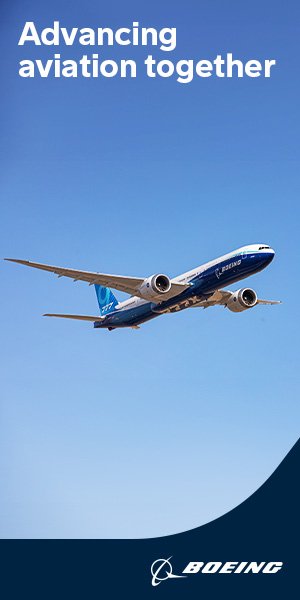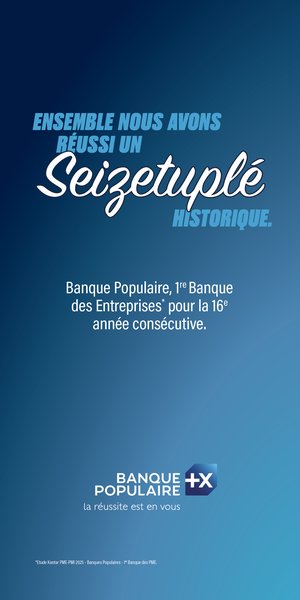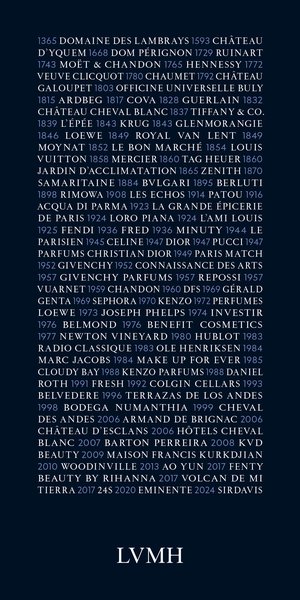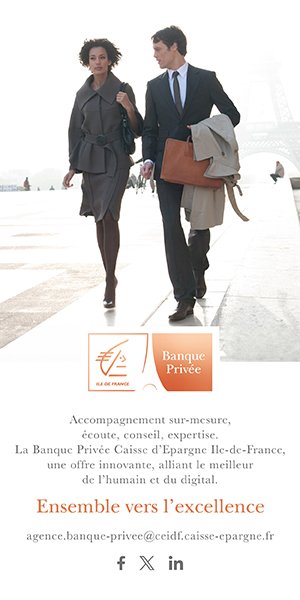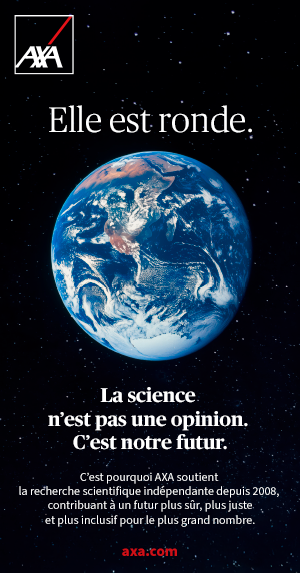(1) Michael S. Neiberg, When France Fell: The Vichy Crisis and the Fate of the Anglo-American Alliance, Harvard University Press, 2021
Denis Bachelot — Vous êtes un diplomate américain dont l’activité a traversé toute la seconde moitié du XXe siècle puisque votre premier poste remonte à 1950 au siège du plan Marshall à Paris. On ne peut citer ici l’ensemble des fonctions que vous avez occupées, y compris lorsque Henry Kissinger dirigeait la diplomatie américaine. Vous avez notamment été secrétaire d’État adjoint aux Affaires européennes de 1974 à 1977, sous la présidence de Gerald Ford. Les relations transatlantiques sont votre terrain de prédilection et, plus particulièrement, les relations franco-américaines : vous êtes l’un des cofondateurs de la French-American Foundation, créée en 1976. Pourquoi, au regard de votre longue expérience de diplomate, avez-vous choisi de privilégier la relation franco-américaine, parmi les autres choix possibles ?
James Lowenstein — Sur le rôle de la Fondation et son développement grâce à la création des Young Leaders, on lira avec profit l’interview de Jean-Luc Allavena, qui décrit l’ensemble de nos activités depuis plus de quarante ans. La French-American Foundation a été créée à l’initiative de deux personnes aux États-Unis, moi-même et Nicholas Wahl, alors professeur à l’Université de Princeton, avant qu’il ne prenne la tête du département des French studies de l’Université de New York. Nicholas Wahl (1928-1996) est un historien américain réputé, spécialiste de la Ve République, qui avait même eu l’occasion de rencontrer le général de Gaulle. Pour la petite histoire, il avait épousé la mère divorcée de Boris Johnson, l’ancien premier ministre britannique.
Les circonstances de la naissance de la Fondation sont intéressantes : nous assistions, Nicholas Wahl et moi-même, à un colloque du Council on Foreign Relations, à New York, en 1974, et évoquions le « French bashing » qui sévissait aux États-Unis à cette époque. L’attitude américaine à l’égard de la France nous paraissait reposer sur une vision fausse, et l’incompréhension était forte entre les deux pays. Nous avions également constaté qu’il n’existait pas d’organisation bilatérale pour traiter des relations politiques et économiques entre la France et les États-Unis, alors qu’il en existait avec d’autres pays importants, comme l’Allemagne, l’Italie ou le Japon et certains pays d’Asie. Or, il existait de nombreuses structures franco-américaines dans les domaines de la langue, des arts et de la culture.
D. B. — L’initiative vient donc de deux personnalités américaines, amies de la France ?
J. L. — Effectivement, à partir de ce constat partagé, nous avons décidé de lancer un projet qui a pris la forme d’une Fondation. Nous avons également vite compris, après de nombreux échanges avec nos amis français, qu’il nous faudrait l’accord du président de la République pour concrétiser ce projet. Et nous savions que Valéry Giscard d’Estaing, qui venait d’être élu, avait un intérêt particulier pour les relations franco-américaines. Nous avons donc fait jouer nos contacts en France pour que notre idée remonte jusqu’à l’Élysée. Nous avons rapidement obtenu un accord du président français, avec une condition : qu’il puisse lui-même annoncer cette création lors d’une visite d’État à Washington. Ce qui a été effectivement réalisé lors de sa rencontre avec le président Gerald Ford à l’occasion du bicentenaire de la naissance des États-Unis, en 1976. Pour l’anecdote, ni Nicholas Wahl ni moi-même n’avons été invités au dîner officiel au cours duquel l’annonce a été faite ! La création de la Fondation est donc bien, au départ, une idée américaine, mais très vite et très positivement adoptée par la France.
Il est intéressant, au fil des décennies, d’observer les fonctionnements respectifs de la branche française et de la branche américaine de la Fondation. Je constate que, depuis quelques années, la French-American Foundation France est particulièrement performante, notamment en termes de levée de fonds et de programmes pédagogiques.
D. B. — Après plus de quatre décennies d’existence, comment évaluez-vous l’apport de la French-American Foundation dans les relations entre les deux pays ?
J. L. — C’est difficile à dire. Ce que l’on peut constater, cependant, c’est qu’à travers le programme des Young Leaders — programme porté par la Fondation depuis 1981 — nous avons pu construire une communauté de personnes dont Jean-Luc Allavena décrit l’influence dans ces pages.
D. B. — Comment définiriez-vous la relation entre la France et les États-Unis, au-delà des changements d’époque et de régimes politiques ?
J. L. — Je crois qu’il y a un aspect psychologique spécifique qui caractérise la relation franco-américaine. Revenons à l’époque de la Seconde Guerre mondiale : la forte antipathie que le président Roosevelt manifestait à l’égard de De Gaulle a souvent entraîné des choix politiques contestables, comme le montre un livre récent sur les relations entre l’administration Roosevelt et le gouvernement de Vichy (1). Ce mauvais état d’esprit, selon moi, provient largement de l’époque de De Gaulle, quand celui-ci est entré en conflit avec les États-Unis, en pleine période de guerre froide, sur la question de la localisation des armements atomiques américains en Europe. Le général de Gaulle voulait savoir, dans l’éventualité d’un conflit avec l’URSS, où se trouvaient ces armes, alors que les Américains refusaient de donner le détail des emplacements. Un élément clé dans une situation de tension, qui a conduit au retrait de la France de l’Otan et au ressentiment américain qui a accompagné cette décision.
Aujourd’hui, la relation est beaucoup plus apaisée car il n’y a pas de différend politique qui oppose profondément les deux pays. À moins — on ne se sait jamais — que l’Ukraine devienne un sujet de division, mais cela ne semble pas être le cas. D’ailleurs, les liens du président Macron, ancien Young Leader comme vous le savez, avec l’actuelle administration sont positifs, ce qu’a confirmé sa visite d’État, fin novembre 2022, aux États-Unis. Emmanuel Macron est le seul président français à avoir effectué deux visites d’État aux États-Unis. Il faut également souligner que le premier chef d’État en visite officielle reçu par Joe Biden après son élection a été Emmanuel Macron, alors que Donald Trump, lui, avait accueilli, comme premier invité, le premier ministre populiste hongrois Viktor Orban. Notons, enfin, que le fait que de nombreux Français parlent aujourd’hui l’anglais, alors que presque personne ne le parlait quand j’ai découvert la France dans les années 1950, a grandement favorisé les liens et les échanges entre nos deux pays.
D. B. — Le durcissement actuel des relations économiques avec les États-Unis, notamment sur l’actuelle question des subventions massives accordées aux industries outre-Atlantique, peut-il durablement affecter les liens entre la France et son partenaire américain ?
J. L. — Ces tensions existent de fait et elles tendent à s’aggraver, mais ce sont des conflits qui relèvent des relations américano- européennes, et non des relations bilatérales entre la France et les États-Unis, et cela constitue une grande différence par rapport aux situations que nous connaissions il y a quelques décennies. Le cadre européen a désormais pris le pas sur le cadre national.
D. B. — Le French bashing d’un côté et l’anti-américanisme idéologique de l’autre font aussi partie de la culture des deux pays. Quelles seraient, à votre avis, les pistes pour améliorer les relations entre la France et les États-Unis ?
J. L. — Je crois que la meilleure est celle que nous avons adoptée avec la French-American Foundation : multiplier les rencontres et les échanges. Je n’ai personnellement jamais rencontré un Américain qui, ayant passé un temps relativement important en France, se dise antifrançais. Et, en sens inverse, je ne pense pas que les étudiants français qui viennent dans nos universités conservent un préjugé anti-américain.
À titre d’exemple, durant les premières années du fonctionnement de la French-American Foundation, nous avions pris l’initiative de mettre en contact des membres du Congrès avec des parlementaires français ; puis, chaque élu américain allait passer une semaine chez son homologue français afin de mieux se connaître. Nous étions très satisfaits des retours de cette expérience qui n’a malheureusement pas été poursuivie par la suite. Dans le même esprit, nous avons également organisé, toujours dans les premières années de la Fondation, un programme consistant à inviter aux États-Unis des professeurs français enseignant l’anglais. Presque tous étaient des socialistes convaincus, anti-capitalistes et anti-américains. Nous les avons reçus dans des lycées du Middle West pour des séjours de deux semaines, et je dois dire que la grande majorité d’entre eux avaient complètement modifié leur perception de l’Amérique à l’issue de leur séjour. Nous avions aussi demandé à un professeur de Harvard de réaliser des enquêtes sur l’image de la France véhiculée par les télévisions américaines, et vice versa. Ce genre d’initiatives me semblait très utile et je regrette que la Fondation ne les ait pas maintenues. Rien ne peut remplacer les liens humains.
D. B. — À ce propos, l’Amérique a-t-elle aujourd’hui une vision contrastée de ses relations avec chaque pays européen, ou bien perçoit-elle l’Europe comme un tout unifié dont la tête est à Bruxelles ?
J. L. — Tout dépend de quelle partie de la population américaine vous parlez. Si vous parlez de celle qui s’intéresse à la culture française, elle considère la France en tant que pays particulier. Si ce sont des Américains qui sont impliqués dans des relations d’affaires ou dans le domaine des relations internationales, ils privilégieront très nettement une approche européenne. Je pense que, pour la plupart des Américains concernés par la vie internationale, il n’y a pas véritablement de différence entre la dimension politique et la dimension économique ; ils privilégieront donc une vision européenne plus globale.
D. B. — La notion de « monde libre » unifié autour des États-Unis, qui a marqué l’époque de la guerre froide et les décennies suivantes, a-t-elle encore un sens, voire un avenir ?
J. L. — J’espère avant tout que ces relations privilégiées se maintiendront ; mais si l’on prend, dans l’actualité d’aujourd’hui, les deux grands enjeux internationaux de la politique étrangère américaine, la guerre en Ukraine et le rapport à la Chine, il est difficile de dire comment les positions évolueront dans l’approche respective des États-Unis et de l’Union européenne, même si, jusqu’à maintenant, l’entente entre les deux parties a bien fonctionné.
La question du leadership américain que vous évoquez renvoie, selon moi, aux enjeux de la politique intérieure des États- Unis. La French-American Foundation avait l’habitude, à une époque, de mener une enquête d’opinion annuelle sur la façon dont chacun des deux pays percevait l’autre. J’aurais souhaité que nous puissions encore disposer de ce type d’étude : je pense que nous constaterions que les quatre années d’administration Trump ont sérieusement affecté la façon dont est perçue la qualité de la démocratie américaine. Je crains que notre modèle politique ait subi une nette dégradation de son image durant ces quatre années. Et ce qui se passera dans les six prochaines années dépend désormais de ce qui arrivera lors des élections de 2024. Si Trump est à nouveau élu, je ne suis pas optimiste sur ce qu’il adviendra de la perception des États-Unis à l’international. Et, quant à la question de savoir si nous pourrions, ou pas, redevenir une nation respectée et admirée, je me demande quelle personnalité politique pourrait aujourd’hui incarner cette perspective.
D. B. — Et si le vainqueur est un candidat républicain autre que Trump, comme Ron DeSantis, le gouverneur de Floride, dont on parle beaucoup ?
J. L. — Difficile d’imaginer ce type de situation et son impact en termes de politique internationale. DeSantis, il faut le noter, ne prend pas position sur les sujets internationaux ; personne ne sait vraiment ce que serait sa politique étrangère. Il est d’ailleurs étonnant de constater que des personnalités républicaines très conservatrices, comme DeSantis ou Mike Pompeo, des gens sortis de grandes universités comme Yale ou Harvard, très intelligents et cultivés, semblent faire assez peu de cas des affaires internationales dans leur positionnement politique. Nous assistons aujourd’hui, au sein du Parti républicain, au développement d’un « trumpisme » sans Trump.
Je m’inquiète, par ailleurs, de la montée de l’intolérance et de la violence aux États-Unis : nous sommes le seul pays au monde où vous trouvez plus d’armes que de citoyens ! La radicalité politique est croissante et menace notre démocratie qui, nous l’avons dit, n’apparaît plus vraiment comme un modèle capable d’assurer un leadership. Je ne pense pas toutefois, contrairement à certains commentateurs, que cette montée régulière de la violence finira par déboucher sur un scénario de guerre civile. Un des enjeux majeurs, selon moi, qui peut détériorer gravement la vie politique aux États- Unis, mais aussi en Europe, et spécialement en France, est celui de l’immigration. Un sujet qui favorise la montée d’une droite radicale ; or je ne vois malheureusement pas, en l’état, de solutions possibles pour maîtriser son évolution et ses conséquences déstabilisantes.
D. B. — Quelles sont les personnalités politiques françaises et américaines qui vous ont le plus marqué par leur vision internationale ? Plus spécifiquement, en tant que père fondateur de la French-American Foundation, lesquelles admirez-vous pour leur engagement en faveur de la relation franco-américaine ?
J. L. — J’ai, bien sûr, beaucoup admiré le général de Gaulle. Je dirais aussi que le président Giscard d’Estaing connaissait très bien les affaires internationales. Aux États-Unis, je pense que Harry Truman a été un grand président, le plus grand depuis l’époque de la Seconde Guerre mondiale, avec une forte stature internationale. John Kennedy a su s’entourer des esprits les plus brillants de son temps en termes de relations internationales ; il a été, à ce titre, un grand président. En termes plus spécifiques, en ce qui concerne les rapports franco-américains, je constate que les diplomates français connaissent bien les données de cette relation. Aux États-Unis, il existe aussi de très bons spécialistes de la France dans les universités mais, parmi les personnalité politiques américaines, très peu ont une réelle connaissance de votre pays. Cela dit, l’ancien secrétaire d’État John Kerry ou, aujourd’hui, le secrétaire d’État Antony Blinken,qui ont des attaches familiales avec la France et sont tous les deux francophones, connaissent bien et souhaitent fortifier, si besoin est, les relations franco-américaines.
D. B. — Selon vous, qu’est-ce que les États-Unis devraient importer chez eux de ce qui caractérise le modèle français et, a contrario, qu’est-ce que la France devrait emprunter au système américain, quel que soit le domaine envisagé ?
J. L. — Pour moi, vu du côté américain, je n’hésite pas à dire que les États-Unis devraient s’inspirer du modèle social français qui protège beaucoup mieux sa population que le système américain, notamment sur les questions de santé ou de coût des études. Je pense également que la répartition des revenus est devenue totalement hors de contrôle aux États-Unis et que la situation sur ce point précis est plus saine en France. Les différences de salaires en Amérique entre les dirigeants des entreprises et leurs salariés peuvent atteindre des niveaux totalement absurdes. Il est plus difficile pour moi de dire ce que les Français devraient emprunter aux Américains, mais j’évoquerais l’esprit d’entreprise, l’optimisme entrepreneurial et la possibilité d’accéder à des financements pour lancer une affaire. Dans un ordre d’idée similaire, le système philanthropique des États-Unis me paraît être un modèle positif : il révèle une capacité d’engagement des particuliers au service de belles causes dont la France pourrait s’inspirer avec le plus grand profit.
Denis Bachelot — You are an American diplomat whose career traversed the second half of the 20th century, since your first assignment goes back to 1950 at the headquarters of the Marshall Plan in Paris. It is impossible to cite here all the functions that you have held, including when Henry Kissinger headed American diplomacy. You were in particular deputy assistant secretary of state for European affairs from 1974 to 1977 under the presidency of Gerald Ford. Transatlantic relations are your field of expertise and, more particularly, Franco-American relations since you are one of the co- founders of the French-American Foundation, created in 1976. Why, given your long experience as a diplomat, did you choose to favour the Franco-American relationship among all the possible choices?
James Lowenstein — On the role of the Foundation and its development thanks to the creation of the Young Leaders, we can benefit from the interview with Jean-Luc Allavena which describes all our activities over more than 40 years. The French-American Foundation was created on the initiative of two people in the United States, myself and Nicholas Wahl (1928-1996), then a professor at the University of Princeton before he took over the French Studies department at the University of New York. Nicholas Wahl is an American historian of repute and a specialist on the Fifth Republic who even had the opportunity to meet General de Gaulle. Incidentally, he married the divorced mother of Boris Johnson, the former British prime minister.
The circumstances of the birth of the Foundation are interesting: Nicholas Wahl and I were attending a Council on Foreign Relations colloquium in New York in 1974 and talked about the ‘French bashing’ rampant in the United States at the time. The American attitude towards France seemed to us to be based on a false vision and the lack of understanding between the two countries was strong. We also noted that there was no bilateral organization to deal with political and economic relations between France and the United States whereas these did exist for other important countries such as Germany, Italy or Japan and some Asian countries. On the other hand, there were many Franco-American structures in the fields of language, arts or culture.
D. B. — So the initiative came from two well-known American friends of France?
J. L. — In effect, starting with this shared view, we decided to launch a project which took the form of a foundation. We also quickly understood, after a number of exchanges with our French friends, that we should need the agreement of the President of the Republic to carry out this project. And we knew that Valéry Giscard d’Estaing, who had just been elected, had a special interest in Franco-American relations. We then brought our contacts in France into play so that the idea would reach up to the Élysée. We quickly obtained the agreement of the French president with one condition: that he could announce this himself during a state visit to Washington. And this was effectively done at his meeting with President Gerald Ford at the bicentennial of the birth of the United States in 1976. Anecdotally, neither Nicholas Wahl nor myself were invited to the official dinner at which the announcement was made! So the creation of the Foundation was truly at the start an American idea that was quickly and very positively adopted by France.
It has been interesting, over the decades, to see the respective functioning of the French and American branches of the Foundation. I note that, for some years, the French-American Foundation France has been particularly active, notably in terms of raising money and organising teaching programmes.
D. B. — After more than four decades of existence, how do you evaluate the contribution of the French-American Foundation to relations between the two countries?
J. L. — It’s difficult to say. What one can state, however, is that through the Young Leaders programme – backed by the Foundation since 1981 – we have been able to build a community of people whose influence Jean-Luc Allevena describes in these pages.
D. B. — How would you define the relationship between France and the United States beyond the changes wrought by time and political regimes?
J. L. — I believe there is a specific psychological aspect that defines the Franco-American relationship. Let’s go back to the time of World War II: the strong antipathy that President Roosevelt showed with regard to de Gaulle often led to debatable political choices, as shown by a recent book on relations between the Roosevelt administration and the Vichy government (1). This poor state of mind for me comes mainly from the time of de Gaulle when he clashed with the United States on the question of the positioning of American atomic arms in Europe. General de Gaulle wanted to know, in the event of a conflict with the USSR, where these arms were to be found, while the Americans refused to give details of their location. A key element in a situation of tension which led to the withdrawal of France from NATO and to an American resentment that accompanied this decision.
Today, this relationship is much calmer because there is no political question profoundly pitting the two countries against each other. Unless – you never know – Ukraine becomes a divisive subject, but that does not seem to be the case. Incidentally, the links of President Macron, a former Young Leader as you know, with the current administration are positive and his state visit at the end of November to the United States confirmed this. Emmanuel Macron is the only French president to have effected two state visits to the United States. One should also highlight that the first head of state received on an official visit by Joe Biden after his election was Emmanuel Macron, whereas Donald Trump for his part received as his first guest the populist Hungarian prime minister, Viktor Orban. We should note finally that the fact that many French people today speak English, whereas almost nobody did when I discovered France in the 1950s, has greatly favoured links and exchanges between our two countries.
D. B. — Can the current hardening of economic relations with the United States, particularly on the question of massive subsidies granted to industry across the Atlantic, have a lasting effect on links between France and its American partner?
J. L. — These tensions effectively exist and are tending to deteriorate but they are tensions that stem from American-European relations and not from the bilateral relations between France and the United States. And that makes for a great difference with regard to situations that we experienced a few decades ago. The European framework has now taken over from the national framework.
D. B. — French bashing on one side and ideological anti-Americanism on the other are also part of the culture of the two countries. What paths could, in your view, improve relations between France and the United States?
J. L. — I think that the best is the one we have adopted with the French-American Foundation: increasing meetings and exchanges. I have personally never met an American who, after spending a relatively substantial time in France, claims to be anti-French. And, in the other direction, I don’t think that French students who come to our universities retain anti-American prejudice.
As an example, during the first years of the work of the French-American Foundation, we took the initiative to put members of Congress in contact with French parliamentarians; then, each elected American representative went to spend a week with his French counterpart so they could get to know each other better. We were very satisfied with the feedback from this experience which, unfortunately, was not to be continued later. In the same spirit, we also organised, again during the Foundation’s early years, a programme that consisted of inviting French teachers of English to the United States. Almost all of them were convinced socialists, anti-capitalists and anti-American. We welcomed them to high schools in the Middle West for two-week stays and I have to say that the great majority of them completely changed their perception of America by the end of their stay. We also asked a Harvard professor to carry out surveys on the image of France conveyed by American television channels and vice versa. This sort of initiative seemed to me to be very useful and I regret that the Foundation did not continue them. Nothing can replace human ties.
D. B. — On this topic, does America today have a contrasting vision of its relations with each European country or does it see Europe as a unified whole with its leadership in Brussels?
J. L. — It all depends on which part of the American population you are talking about. If you are talking about that which is interested in French culture, it looks at France as a country in its own right. If it is a matter of Americans who are involved in business matters or in the domain of international relations, they very clearly favour a European approach. I think that, for most Americans involved in international life, there is not really a difference between the political and the economic dimension; they therefore favour a more global European vision.
D. B. — Does the notion of ‘the free world’ unified around the United States that marked the era of the Cold War and the following decades, still have meaning or even a future?
J. L. — I hope above all that these privileged relations will be maintained; but, if we consider, in the news of today, the great international issues facing American foreign policy, the war in Ukraine and the relationship with China, it is difficult to say how positions will evolve in the respective approaches of the United States and the European Union, even if until now the understanding between the two parties has worked well.
The question of American leadership that you mention takes us back, in my view, to domestic political stakes in the United States. The French-American Foundation was in the habit at one time of conducting an annual opinion survey on the way that each of the two countries saw the other. I would have liked us still to have such types of study: I think that we would find that the four years of the Trump administration seriously affected the way in which the quality of American democracy was viewed. I fear that our political model suffered a clear deterioration in its image during those four years. And what happens in the next six years now depends on what happens in the 2024 elections. If Trump is elected again, I am not optimistic about what will happen to the international perception of the United States. And, as for the question of whether we can become again a respected and admired nation or not, I wonder which political personality could today incarnate this prospect.
D. B. — And if the winner is a Republican candidate other than Trump, such as Ron DeSantis, the Florida governor, who is mentioned a lot?
J. L. — It is difficult to imagine this sort of situation and its impact in terms of international politics. DeSantis, it should be noted, does not take any stance on international subjects; nobody knows what his foreign policy would be. It is incidentally surprising to note that very conservative Republican personalities such as DeSantis or Mike Pompeo, people who graduated from good universities such as Yale or Harvard and who are very intelligent and cultivated, seem to take international affairs into account very little in their political positioning. We are witnessing today in the Republican Party the development of a ‘Trumpism’ without Trump.
I am worried, in addition, by the rise in intolerance and violence in the United States: we are the only country in the world with more weapons than citizens! Political radicalism is growing and threatens our democracy which, as we have said, no longer seems like a model capable of offering leadership. I do not think even so, unlike some commentators, that this steady increase in violence will end in a civil-war scenario. One of the major issues, for me, which can seriously damage political life in the United States and also in Europe and particularly in France is that of immigration. It is a subject that encourages the rise of a radical right; and I don’t unfortunately see in the current state of things possible solutions to control its progression and its destabilising consequences.
D. B. — Who are, for you, the French and American political personalities who impressed you the most by their international vision? More specifically, as a founding father of the French- American Foundation, whom do you admire for commitment to the Franco-American relationship?
J. L. — I, of course, much admired General de Gaulle. I would also say that President Giscard d’Estaing knew international affairs very well. In the United States, I would say that Harry Truman was a great president, the greatest since World War II, with a strong international stature. John Kennedy was able to surround himself with the most brilliant minds of his time in terms of international relations; he was, in this respect, a great president. In more specific terms, as far as Franco-American relations are concerned, I note that French diplomats understand the fundamentals of this relationship. In the United States, there are also very good specialists in France in the universities but, among American political figures, very few have real knowledge of your country. That said, the former Secretary of State, John Kerry, or, today, Secretary of State Antony Blinken, who have family links to France and who are both French-speakers, know well and want to strengthen, if needed, Franco-American relations.
D. B. — For you, what should the United States import from what characterises the French model and, a contrario, what should France borrow from the American system in whatever domain?
J. L. — For me, seen from the American side, I don’t hesitate to say that the United States should take inspiration from the French social model which protects its population much better than the American system, especially on health questions or tuition costs. I think too that income distribution has gone totally out of control in the United States and that the situation in this precise regard is healthier in France. Salary differences in America between company bosses and employees can reach totally absurd levels. It is more difficult for me to say what the French should borrow from the Americans, but I would mention the spirit of enterprise, entrepreneurial optimism and the possibilities for obtaining financing to launch a business. In a similar vein, the United States philanthropic system seems to me to be a positive model; it shows a capacity for commitment by private citizens in the service of just causes; inspiration from this could bring great benefit.
